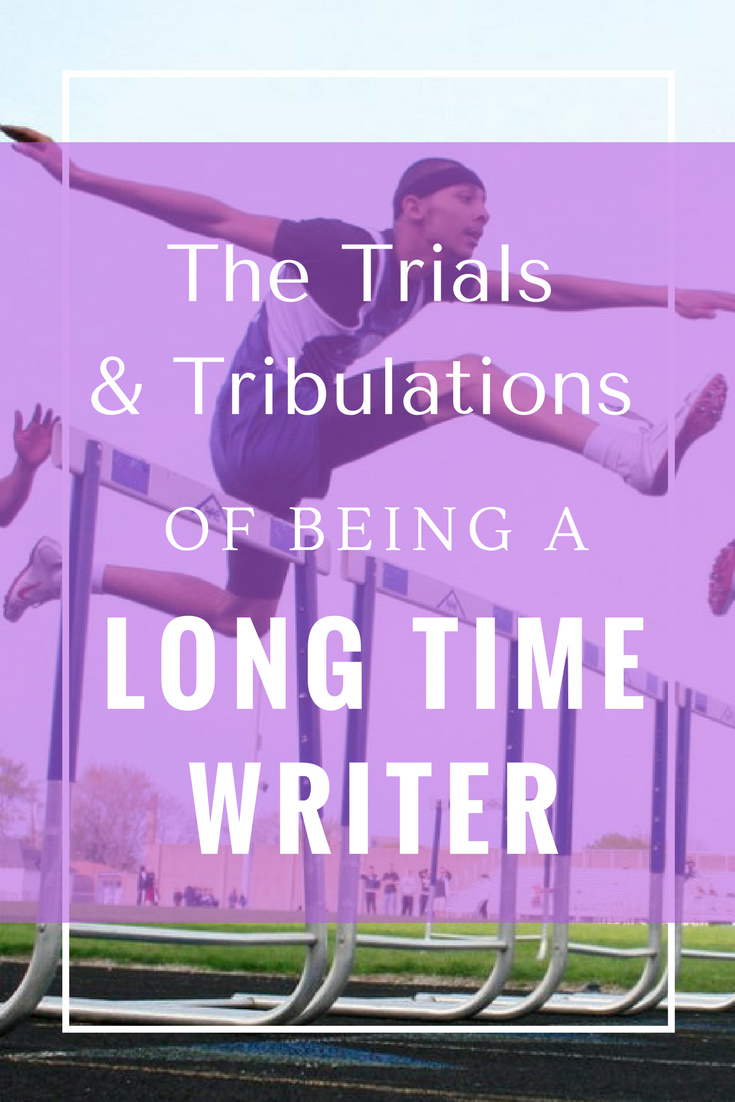
Trials and Tribulations of Being a Long-Time Writer
Our latest post is a guest post by the incisive and analytical Victoria Fry:
Victoria Fry is an avid writer of contemporary, fantasy, and historical fiction. She specializes in helping writers develop epic characters, achieve their writing goals, and (re)discover the joy of creativity through her website and coaching sessions.
Being a long-time writer has its perks. You’ve had a chance to develop your style; the opportunity to explore whether you’re a plottr, a pantser, or both; and encounters with heaps of plot bunnies and what they have to offer. Some unique challenges come along with this longevity, too. Knowing how to deal with them is important, lest your creativity takes a hit while you try and wade through the murky waters.
Challenge #1: Running out of ideas
Being bereft of new ideas, one of a writer’s worst nightmares, can be devastating. Trying to force yourself to write doesn’t work because there’s nothing to write about. Walking away and waiting to be inspired doesn’t work because the muse has moved on to lusher climates. Getting upset at your lack of ingenuity doesn’t work because creativity isn’t fond of bullies.
One of the best ways to tap into an infinite supply of ideas is by focussing on everything but writing. In The Artist’s Way, Julia Cameron referred to this as filling the well. I like to think of it as stocking your idea cupboard. However you choose to think of it, set yourself free to explore! Expose yourself to other worlds by:
- Tackling a new-to-you hobby. Say you’re a crafty sort and love to knit: you could give cross-stitch or woodworking a try. How far you venture out of your comfort zone is entirely up to you. The important thing is not to just give it lip service. Even if you only try this new hobby for a few days (or a few hours) focus on the little details and sensations. How does it feel to stretch the fabric across the embroidery hoop and adjust the tension with the tiny dial? How does it feel to sand a piece of wood by hand and feel it get butter-smooth under your fingertips? What’s it like to see someone taste a cupcake you made from scratch and see their eyes widen in delight?
- Watch documentaries or video podcasts. There are so many issues and lifestyles and careers and locations in the world that we’ll never experience firsthand. Take a shortcut by watching something visually absorbing that holds your attention. You can take notes while you’re watching or just take it all in.
- Attend talks at your local university. These could explore a topic that’s always interested you or feature an expert in a field that you’ve hardly paid attention to in the past. If there’s a Q&A session afterwards, be brave and ask questions yourself, as well as listening to what other people are curious about!
Challenge #2: Writing that’s stale and samey
We spend a lot of time wondering how to find and develop our “voice,” that je ne sais quoi in our writing. When we hit on something that feels natural, we snuggle down in our writing nests and do what feels good. Questioning your voice may feel like sacrilege when you’ve worked so hard to discover it in the first place, but when it’s time for something fresh, you can:
- Write a short piece (a poem, maybe, or a piece of flash fiction) that’s drastically different from what you’d normally write. Change the genre, what the main character is like, the time period, the proportion of description and setting versus dialogue and action or vice versa. Don’t worry about it being “good” writing. Just push yourself as far from your comfort zone as possible.
- Call a friend. If you have a writing buddy who’s strong in the ways of the Force – or strong in the ways of a writing technique or style you envy – it’s time to pick their brains! Ask them what resources they’ve perused and how they’ve developed their writing style. I wouldn’t be surprised if they’d struggled along the way, too: learning how they scaled those mountains can give you ideas on how to do the same.
- Write fan fiction. By using someone else’s characters, settings, and worldbuilding instead of your own, you’ll be in an entirely different environment (but one that’s intimately familiar to you) and can set yourself free to try a different style of writing, as well. It’s also ridiculously fun to play out scenarios you wish had happened in the book/movie/TV show and explore how they might have affected the broader story! If you’re not familiar with the world of fan fiction, two quick reminders: find out whether the author of the original work has said yea or nay to fan fiction, and don’t offer any of it for sale.
Challenge #3: Feeling pressured to publish
Publishing has long been seen as a mark of success for writers, with literary agents and editors serving as gatekeepers. The face of publishing is changing, however, and writers are waking up to the fact that they don’t have to be published by a big publishing house to be considered successful or to be known as Real Writers.
That doesn’t necessarily take the pressure off, though. If you’ve been writing for years and haven’t published anything, you might start to feel like you’re doing something wrong, especially if writers in your community (online or off) are Tweeting about query letters, mock-ups from their cover designer, and foreign rights deals. It can start to feel like you’re in a race and falling further and further behind. What’s the finish line to that race, though? Does the race end when you’ve published one book? Two? Ten?
The only “should” around pursuing publication is that you should only follow that path if and when you want to. You’re no less of a writer if you wait a few more years before either self-publishing or going the more traditional publication route. You’re no less of a writer if you decide not to publish your work at all. You and your writing are enough, just as you are.
To relieve some of this pressure about publication, have a look at:
- Whether you want to get published. There’s no rule that says “All writers must publish thy works or surrender thy Muse forevermore!” If you want to write solely for your own pleasure, that’s awesome. If you only want to share your stories with your cat, your husband, and your three year old son, that’s great, too. If you want to seek representation from a literary agent, that’s wonderful. The important thing is to figure out which option is right for you. A little clarity works wonders for stress relief. And yes, you can totally change your mind down the line!
- Your motivation for wanting to publish your work. There’s nothing wrong with wanting to make a living from the work you love. There’s nothing wrong with craving a wider audience. There’s nothing wrong with daydreaming about handing out business cards that say “Published Author.” The only motivations that should ring alarm bells are ones that (a) make you question the value of a work-in-progress you otherwise love, or (b) encourage you to cut corners and race to an arbitrary finish line.
- What you love about your current work-in-progress. When you’re feeling overwhelmed, sometimes it’s best to focus on something else. Step back from the swirl of publishing thoughts and dive into your WIP. Choose the characters you love best and daydream about what their lives are like beyond the page. Write a scene you’ve been looking forward to for ages, even if it’s out of order. Look back at the first notes you ever made about this WIP. Reconnect with the writing and remind yourself that publication can wait until you’re darn well ready.
Like anything pursued for the long haul, writing has its ups and downs. There are times when it exasperates us and times when it makes us feel like Peter Pan. We can squeal with delight one day and be snowed under by doubt the next. It’s an incredible path to follow, and the more aware we are of what we’re facing, the easier it is to face the challenges head-on.
What challenges have you faced in your writing journey over the years?
